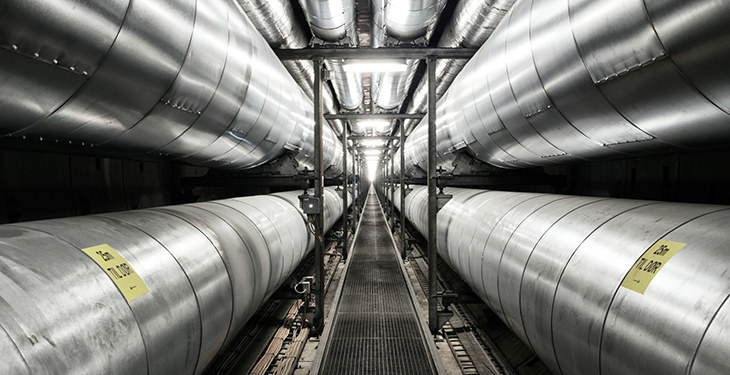ELCEN wants to build three new cogeneration units, within the perimeters of the Bucharest, Grozavești and Progresul power stations, officials told energynomics.ro. The company will soon start the procedures for the tender of the feasibility study under the first project, at CTE Sud.
“ELCEN intends to replace the current obsolete equipment park, in terms of compliance with environmental protection requirements, efficiency and safety in operation, as well as the implementation of new, modern, highly-efficient cogeneration energy production. These steps, which will be carried out in stages (in the period 2020-2030), will allow to maintain the production capacity of the thermal and electrical energy, in a sustainable way, in the long term. Besides the project from CTE Sud, pre-investment studies have been elaborated to start a project at CTE Grozăveşti and we have in perspective to start the acquisition for the elaboration of pre-investment studies for a similar project at CTE Progresu,” ELCEN officials have told us.
“The new power plant will make a significant contribution to maintaining the market share of CTE Central Sud of about 35-40% of the thermal energy delivered by ELCEN in the centralized system of heat supply of the municipality of Bucharest (over 30% of the thermal energy required in the centralized system of the city). Regarding the electricity delivered to the national system, respectively ensuring a production for the Municipality of Bucharest, when the electricity consumption of the city is in the winter period of about 700 – 800 MW, while ELCEN produces about 600 MW, the implementation modern groups within ELCEN with an installed power of 200-400 MW would bring multiple benefits from the point of view of the safety of the consumers’ supply,” they said, explaining that it is too early to provide an estimated cost of the project.
“Given the context of the insolvency, ELCEN does not have sufficient own financial resources, so we are also interested in attracting other sources (use of a European financing component or loans). Of real interest to us is, at this moment, the mechanism promoted on the basis of the Modernization Fund to support low carbon investments, based on Directive (EU) 2018/410 of the European Parliament and of the Council in 2018.”
They claim that the feasibility study for the new project from CTE Bucharest Sud has a development period of 6 months, and the procedure for appointing the winner of the tender for the execution of such a project can take between 6 and 8 months.
“We need to take into account the need of choosing, within the projects, of a consultant and a provider of financing solutions for these projects. In view of all this, the designation of a winner cannot be taken into account earlier than 1 year after the start of the procurement documentation.”
It is expected that the action to obtain the necessary opinions and agreements, including the environmental agreement, will be carried out at the end of 2020. The exact implementation schedule will result, however, after completing the Feasibility Study, which, according to the market study conducted by ELCEN, could cost about 830,000 lei. “The final price will result from the competitive procedures for awarding the contract for carrying out the feasibility study,” ELCEN officials also said.

